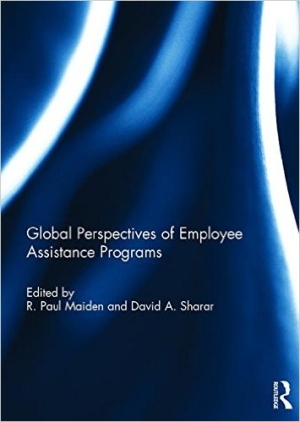How Can Global Businesses Support Their Employees?
March 01, 2016 / by Eric Lindberg- Research
A new book examines how companies in diverse international settings can assist their employees with personal problems that adversely affect performance and productivity.
Global Perspectives of Employee Assistance Programs is the first book to explore the employee assistance program (EAP) concept in the international context, said R. Paul Maiden, executive vice dean and professor at the USC School of Social Work.
“There has been enormous growth in this field in the global marketplace,” said Maiden, who coedited the book. “These companies all have the same problems we do, but there are people out there doing a lot of different things we aren’t doing in the United States.”
EAPs are generally intended to help employees address personal issues that might affect their job performance, such as substance abuse, stress, health concerns, financial or legal problems, and work–family balance. They typically involve services like short-term counseling and referrals to other health or mental health providers.
Although the programs have been prevalent among U.S. businesses for decades, they are relatively new to the international scene.
Maiden has witnessed the model expand in popularity worldwide since the 1990s, when he worked in the South African mining industry to develop an EAP for serious drug and alcohol problems, workplace violence and HIV/AIDS issues. He later helped launch a similar program in the Russian oil fields and ultimately received two Senior Fulbright Scholar awards related to his work in both countries.
As international companies began embracing the idea, and professional organizations for EAP providers emerged, Maiden said demand increased for guidance on how to adopt EAPs in new, diverse settings.
“Their human resources professionals started attending our conferences in the United States, and we started getting invited to companies to develop these programs,” he said. “As companies became more multinational, they realized it was not just about supporting the expats working abroad but also local populations.”
One advantage that many companies in the international marketplace have enjoyed is learning from the mistakes of U.S. businesses, Maiden noted. When supportive programs for employees first appeared in the United States in the 1950s and 1960s, they typically focused only on substance abuse problems and were informally overseen by recovering alcohol or drug addicts as part of their recovery process.
It wasn’t until the 1970s that occupational social workers recognized the emerging area of practice and introduced a broader focus on work and family well-being.
“Overseas companies came into the picture when the field had already been professionalized,” Maiden said. “As they emerged and matured, they had a more holistic approach, they were much more work and life focused, and they were more focused on health and wellness.”
Illustrating the diverse array of global approaches to EAPs, the book features articles on topics ranging from employee support programs for indigenous populations within nations, evaluation of employee counseling services in the Chinese workplace, and substance abuse intervention at a large Russian manufacturing worksite.
Maiden said this broad cross-section of how the EAP model is being deployed in different cultures and work settings should prove valuable to students, employers and professionals interested in workplace behavioral health and well-being from a global perspective.
The book is coedited by David Sharar, managing director of Chestnut Global Partners, a domestic and international EAP provider, and available now from Routledge.
To reference the work of our faculty online, we ask that you directly quote their work where possible and attribute it to "FACULTY NAME, a professor in the USC Suzanne Dworak-Peck School of Social Work” (LINK: https://dworakpeck.usc.edu)
